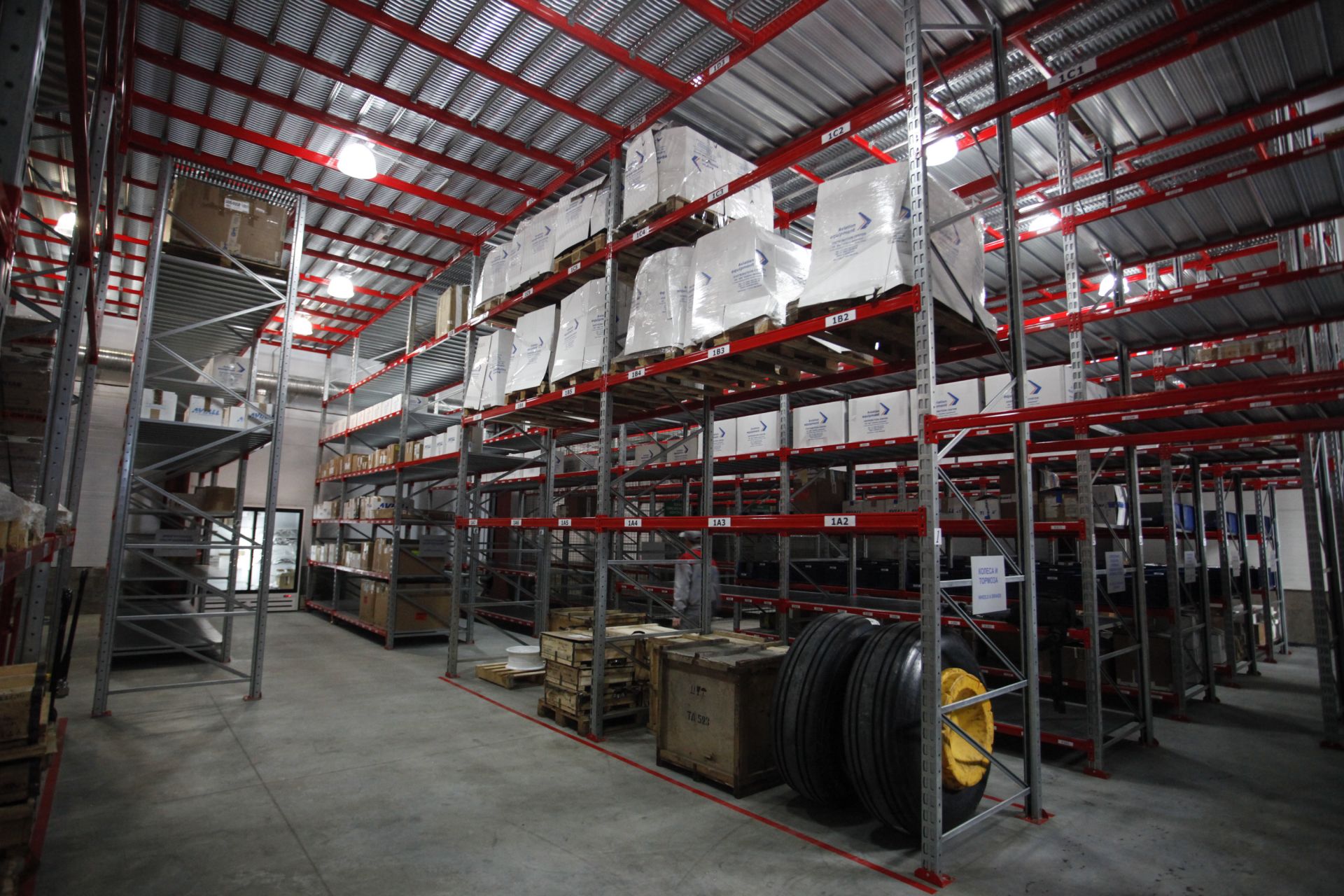
Aviation Equipment Holding Company, a Rostec company, has announced the establishment of Russia’s first aircraft parts distribution and service center for Russian and foreign-made airliners. The new center would help to significantly reduce the downtime of airplanes in Russian airlines’ fleets, as well as reducing the share of counterfeit aircraft parts, which should make flying safer.
Aviation Equipment Holding Company presented the Aircraft Service Center (ASC) – the first one in Russia – on March 14. The two-storey warehouse complex is located within only three kilometres of the Sheremetyevo Airport terminals and has a useful storage area of 1,700 square meters.
Some clear advantages of the ASC include:
• Convenient location,
• 24-7 customer support (at the AOG Desk),
• The option of rush delivery, well-refined approaches to customs clearance (with a way to provide full customs support of deliveries and to organize export clearance of aircraft systems and equipment for repairs overseas),
• Availability of international and domestic logistics channels.
Airlines may choose from a variety of options to work with the Aircraft Service Center – from one-off purchases to pool agreements.
Work on this project began in 2010, when the holding company just started shaping its strategy, says Maxim Kuzyuk, General Director of the Aviation Equipment Holding Company, which initiated the project and was the key investor in its implementation.
The Service Center incorporates international best practices, giving Russian airlines access to world-class service.
In effect, it took the holding company two years to organize the launch of the first aircraft parts distribution center in Russia. So, the distribution base was established in 2010. We spent 2011-2012 studying the best practices of parts distribution for foreign-made aircraft. The Center started selling spare parts for Boeing B737 and Airbus A320 in November 2012. Our plans for 2013-2014 include expansion of our partnership relations to add to the product line: signing agreements with global distribution leaders, joining the partner’s global parts distribution pool, launching domestic pool programs.
The aggregate investment in the project is expected to reach US$ 46.1 million by 2015. The amount invested in 2012 was US$ 3.3 million, the plan for 2013 is to invest an additional US$ 6.9 million in the project, with another US$ 14.5 million in 2014 and US$ 21.4 million in 2015. Full-year 2012 revenue was US$ 1.1 million, and is expected to rise to US$ 15 million in 2013, reaching US$ 100 million per annum by 2020.
“Opening the center will reduce aircraft idling time through fast delivery of spare parts and improve aircraft safety due to additional checks,” Maxim Kuzyuk emphasized.
Major airlines are to become the main customers of the ASC. Agreements have been reached with Aeroflot, UTAir, Transaero, Yakutia Airlines, Nordstar. The Center is currently sourcing parts for Boeing 737 Classic, Boeing 737 NG, Airbus 320 and Aeroflot’s Ilyushin Il-96 airliners. Future stock of parts will change depending on the customers’ needs. The plan is to buy parts for Antonov An-148 and Sukhoi SuperJet. The Aircraft Service Center is currently working with suppliers on two continents (Europe and North America), with plans to source parts from Asia in the future as well.
Until recently, the average lead times for overseas-made aircraft in Russia were there days to weeks, because it was necessary to transport the parts from European warehouses. Opening the service center would reduce lead times to 4 hours at the Moscow hub or to 7 hours if customs clearance is required, which was achieved by establishing a the center’s own warehouse next door to a customs clearance station and ensuring expedited processing of export and import transactions. This enables the carriers to avoid costs associated with aircraft down time. For example, the downtime of a Boeing 737 airliner, the most common in Russia, costs airlines more than US$ 35,000 a day.
In addition, opening the service center would reduce the share of counterfeit aircraft spare parts on the Russian market, thereby improving aircraft safety by using a multi-step automated control and check system. According to Rosaviation, the Russian aviation agency, counterfeit aircraft parts currently account fir 15% of the Russian market.
Maxim Kuzyuk emphasized the promise of the Russian air transportation market, noting the strong, consistence growth trend in Russian passenger transportation. Russia and CIS states was number 7 in the world by passenger traffic in 2011 with 127 billion passenger-kilometers. The number is expected to rise 2.5x by 2020 to 355 billion passenger-kilometers. Moreover, the air freight market is expected to expand to 14 billion metric ton-kilometers by 2020 from an estimated 4 billion ton-kilometers in 2011.
Market forecasts suggest that Russia’s leading airlines should have more than 1200 modern aircraft in their fleets by 2020. The aircraft parts distribution market for Russian fleets would consequently expand by 70% to US$ 500 million by 2020. The holding company intends to control 20% share of this market by then.
Kuzyuk identified the possibility of Western airlines setting up local aircraft parts warehouses in Russia as one of potential risks for the project; attempts to do that have not yet been successful.
Kuzyuk also said that the holding company has plans to set up an aircraft parts repair facility.

